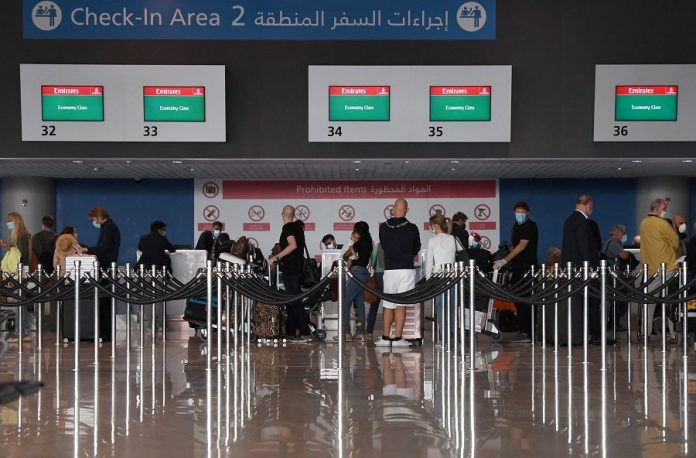DUBAI: Middle East airlines saw little improvement in air travel demand in January compared to pre-pandemic levels.
Regional passenger traffic tumbled 82.3 percent in January 2021 compared to the same period in 2019, according to data from the International Air Transport Association (IATA).
The travel body said that comparisons between 2021 and 2020 monthly results were distorted by the extraordinary impact of COVID-19.
Capacity fell 67.6 percent and load factor, which indicates how seating capacity has been filled by passengers, dropped to 42.9 percent.
It was not a good start for the global aviation industry in general, as demand plummeted 72 percent in January 2021 compared to pre-crisis data.
“2021 is starting off worse than 2020 ended and that is saying a lot. Even as vaccination programs gather pace, new COVID variants are leading governments to increase travel restrictions,” Alexandre de Juniac, IATA’s director general and chief executive, told a briefing.
He said the uncertainty around pandemic-related restrictions are also impacting on future travel.
“Forward bookings in February this year for the Northern Hemisphere summer travel season were 78 percent below levels in February 2019,” he added.
Total domestic demand was down 47.4 percent in January, which showed a further dip from December 2020’s 42.9 percent decline.
This was reportedly due to stricter domestic travel controls, particularly in China, which has one of the biggest domestic air travel markets in the world.
International passenger demand in January was 85.6 percent below January 2019, a further drop compared to the 85.3 percent year-to-year decline recorded in December.
The Asia-Pacific market was the hardest hit, according to IATA’s data, where traffic fell 94.6 percent in January compared to the same period in 2019.
The IATA chief said he was expecting “the industry to burn through $75 billion to $95 billion in cash this year, rather than turning cash positive in the fourth quarter, as previously thought.”
“This is not something that the industry will be able to endure without additional relief measures from governments,” he said.
De Juniac said air travel could be revived as countries increase testing capability and vaccine distribution.
IATA earlier announced a digital travel pass where testing and vaccination data could be easily verified by governments who wish to restore some confidence in international travel.
“These will be critical to restarting international travel if governments continue to require verified testing or vaccination data,” he said.
Once countries agree on a secure standardized system, De Juniac pointed out, there could be some hope for the aviation industry to accelerate its comeback from the impact of COVID-19.

IATA mulls launch of e-travel pass in March 2021Saudia signs new flight deal to help boost e-commerce

